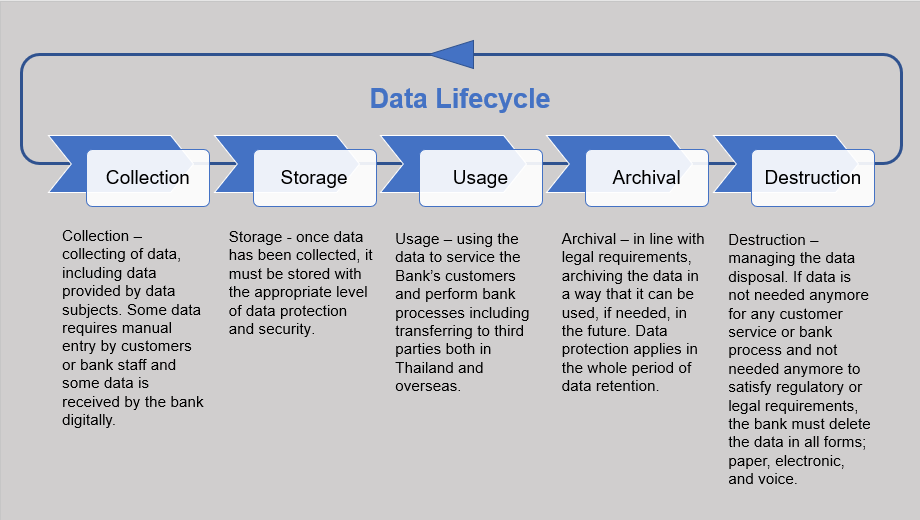The Influence of Effective Data Destruction on Cyber Security Threat Administration
The Influence of Effective Data Destruction on Cyber Security Threat Administration
Blog Article
The Vital Nature of Information Devastation in Upholding Computer System Safety And Security Services and Protecting Versus Unauthorized Accessibility
In an age where data breaches and identity burglary are increasingly widespread, the relevance of reliable data destruction can not be overstated. Organizations has to recognize that the failure to correctly take care of sensitive info positions not only lawful and economic dangers yet also a possible erosion of customer depend on. Various techniques, from information wiping to physical damage, act as important safeguards versus unauthorized gain access to. However, recognizing the ramifications of information devastation methods and compliance with regulations raises essential questions concerning the adequacy of current strategies and their long-term practicality despite advancing threats.
Value of Data Destruction
In an increasingly electronic world, the significance of information devastation can not be overemphasized. As companies collect vast quantities of sensitive information, the potential effects of failing to appropriately dispose and take care of of that information come to be significantly serious. Information breaches, identity theft, and company espionage position substantial threats, underscoring the necessity of effective data damage methods.

Moreover, as innovation progresses, so as well do the approaches whereby destructive actors look for to exploit sensitive info. Organizations should continue to be proactive and cautious in their data devastation techniques to safeguard versus these evolving dangers. By focusing on data damage, companies not only safeguard their properties but likewise foster depend on among stakeholders and clients, showing a dedication to responsible information monitoring and security practices.
Methods of Effective Information Damage
To make certain the permanent and total damage of sensitive information, companies can use a selection of efficient methods customized to their certain requirements. Among the most typical techniques is data wiping, which includes utilizing specialized software application to overwrite existing information multiple times, making recovery essentially difficult. This is especially beneficial for hard disks and solid-state drives, where conventional removal methods are inadequate.
An additional reliable method is degaussing, which uses strong magnetic fields to interfere with the magnetic domains on storage media, rendering the data irretrievable. This approach is particularly matched for magnetic storage tools, such as tape drives and hard disks.
Physical destruction is also a viable choice, including the shredding, crushing, or incineration of storage space devices. This method guarantees that information can not be recuperated, making it perfect for organizations dealing with very delicate details.

Compliance With Information Protection Laws
Organizations need to not just focus on reliable data destruction methods however additionally ensure compliance with information protection policies that regulate exactly how delicate details is handled and dealt with. Adhering to these guidelines is essential for keeping and Click This Link guarding personal data consumer count on. Rules such as the General Information Defense Regulation (GDPR) in the European Union and the Health Insurance Coverage Portability and Responsibility Act (HIPAA) in the United States impose strict guidelines on data administration, which include demands for the safe disposal of delicate info.
To accomplish compliance, companies must execute detailed data destruction plans that straighten with these lawful frameworks. This consists of determining data that needs destruction, establishing protocols for secure methodsâEUR" such as shredding physical media or making use of software application that satisfies market standards for information wipingâEUR" and preserving thorough records of damage activities. Routine audits ought to be performed to make certain adherence to these policies and to identify any prospective locations for renovation.
Failure to follow data protection guidelines can cause substantial legal ramifications, including hefty penalties and damages to a company's track record. Incorporating compliance right into information destruction techniques is not only a lawful commitment but additionally an essential component of a durable details article source safety strategy.
Repercussions of Poor Information Handling
Poor data handling can cause severe repercussions that prolong past prompt operational troubles. Organizations may deal with substantial monetary losses because of data breaches, which typically lead to pricey removal initiatives, legal charges, and regulatory penalties. These financial implications can hinder and strain sources development, ultimately influencing an organization's bottom line.
Additionally, inadequate data handling can significantly harm a company's online reputation. Customers, stakeholders, and partners may lose rely on an entity that falls short to safeguard sensitive info, causing lowered client loyalty and prospective loss of organization possibilities. This erosion of trust fund can take years to reconstruct, if it can be restored whatsoever.
Furthermore, companies could deal with legal implications arising from non-compliance with data protection policies. Such offenses might cause examinations and penalties, worsening the monetary concern and more tainting the company's image.
In the world of cybersecurity, poor data monitoring techniques can develop susceptabilities that make systems a lot more susceptible to unauthorized gain access to and cyberattacks. Eventually, these repercussions underscore the vital value of applying durable information dealing with procedures to safeguard sensitive info and maintain business honesty.
Finest Practices for Secure Information Disposal


Firstly, data must be identified according to its level of sensitivity. Sensitive details requires much more extensive disposal approaches, such as shredding physical documents and utilizing advanced software application for electronic information wiping. Using qualified information devastation solutions ensures compliance with industry regulations and standards.
Second of all, companies should implement an information disposal policy that mandates regular audits. This plan should outline the treatments for data retention and devastation, ensuring that out-of-date information is dealt with immediately and safely. Training employees on these protocols is important to promoting a culture of security recognition.
Lastly, preserving comprehensive records of disposed information boosts accountability and provides a clear audit route. This documentation ought to consist of the sort of information ruined, the technique made use of, and the date of disposal.
Verdict
In conclusion, the essential of efficient information damage is noticeable in its role in boosting computer safety and security services and alleviating unauthorized accessibility dangers. Adopting durable approaches such as data cleaning, degaussing, and physical damage, alongside compliance with regulations like GDPR and HIPAA, is vital for protecting delicate my link info. Neglecting correct data disposal methods can result in severe effects, including information breaches and lawful consequences. Applying best techniques in secure data disposal ultimately fortifies organizational integrity and customer count on.
In an era where data violations and identity burglary are significantly prevalent, the importance of reliable data damage can not be overemphasized. data destruction. Information violations, identification theft, and corporate espionage position substantial threats, emphasizing the need of reliable information destruction methods
Conformity with laws such as GDPR and HIPAA requireds that companies carry out rigorous data protection steps, consisting of the safe destruction of data at the end of its lifecycle.
By prioritizing data destruction, business not just protect their properties but also foster depend on amongst stakeholders and clients, demonstrating a dedication to liable information administration and protection practices.
Organizations need to not only focus on efficient data damage techniques but also ensure compliance with data protection laws that control how delicate information is dealt with and disposed of.
Report this page